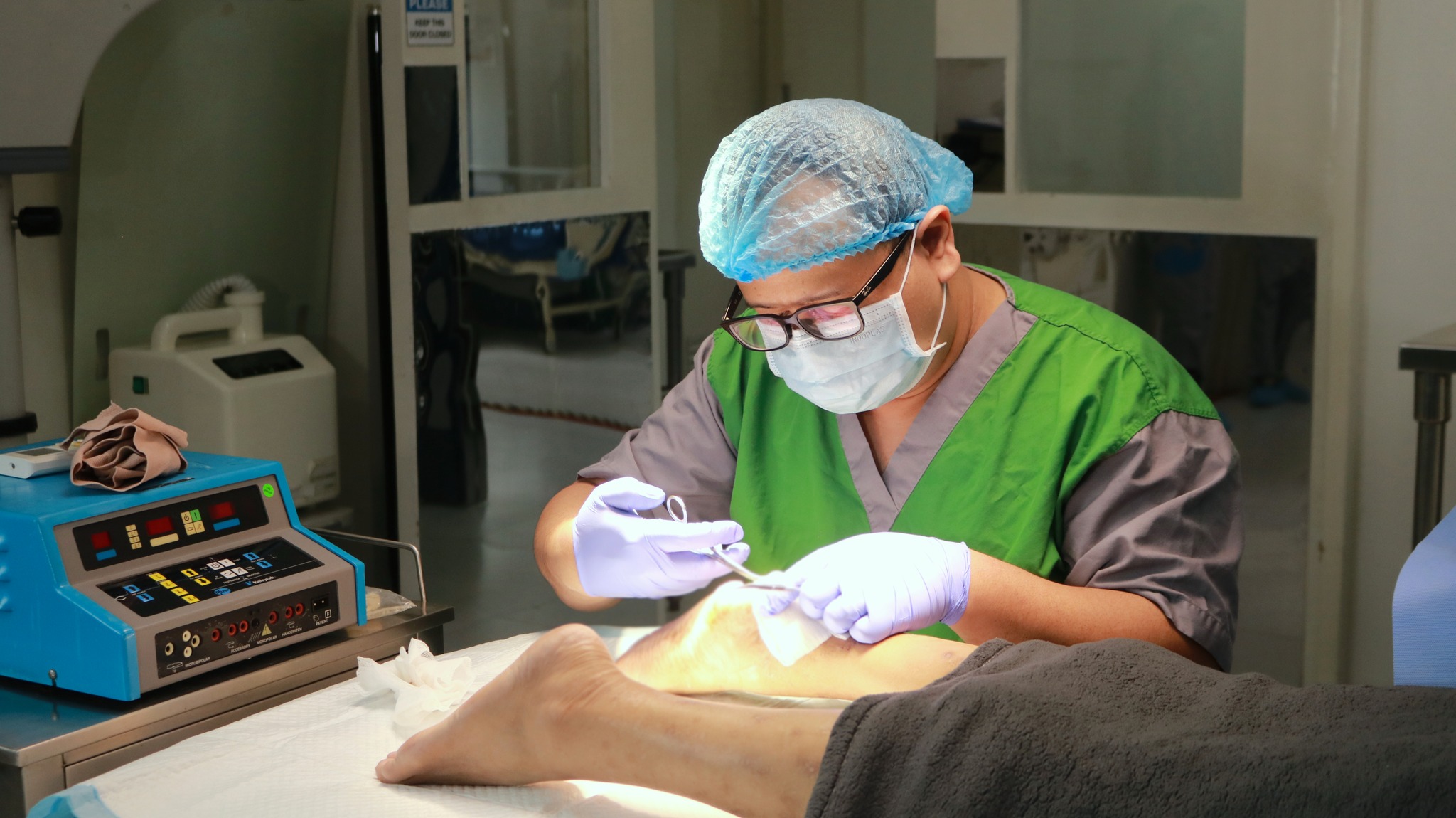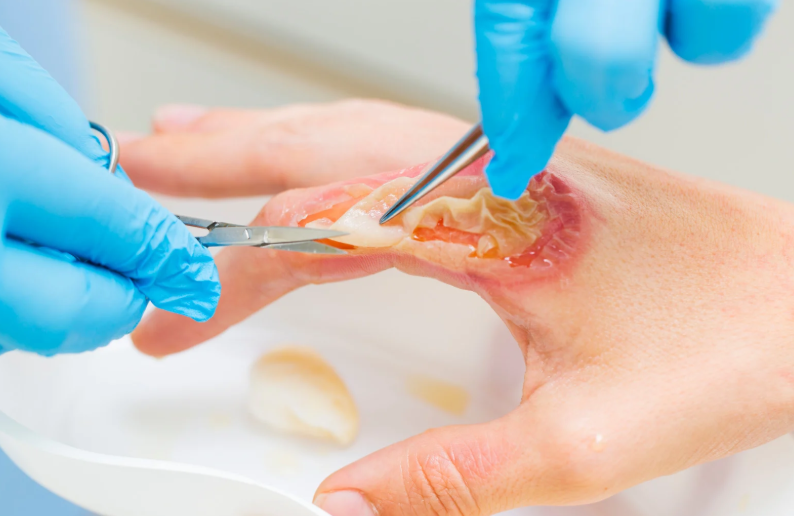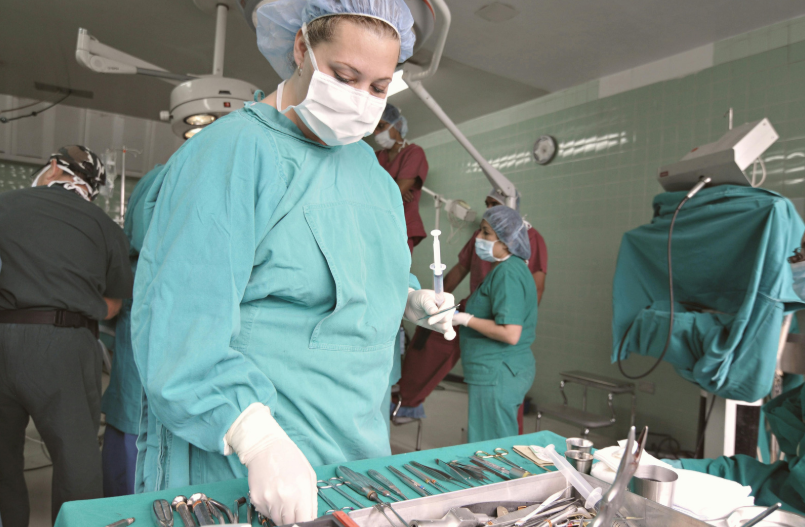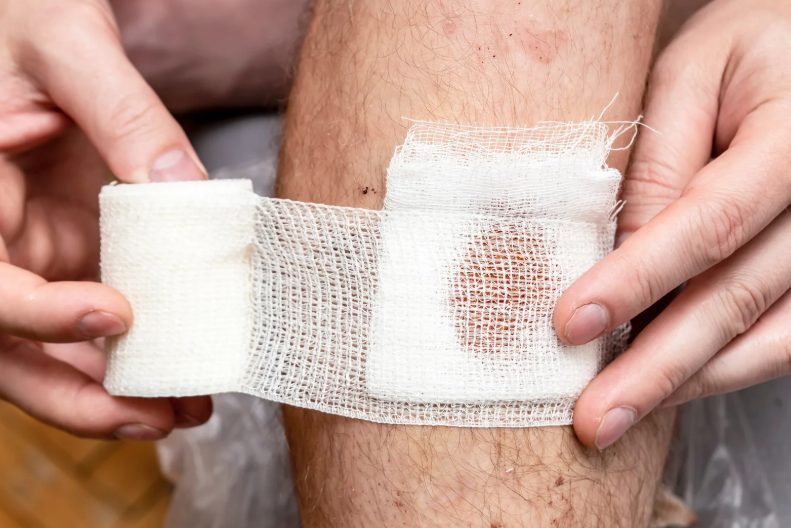Open wounds can happen to anyone, and knowing when and how to get professional care is crucial to ensure proper healing and avoid complications. An open wound doctor is a medical professional who specializes in treating wounds that break the skin’s surface, requiring specific attention beyond standard first aid. These experts play a vital role in managing wounds caused by accidents, surgeries, or chronic conditions, helping patients heal effectively while preventing infection and other serious issues. Understanding their role, treatment methods, and when to seek their care can make a significant difference in recovery outcomes.
Understanding the Role of an Open Wound Doctor
An open wound doctor focuses on diagnosing, treating, and managing wounds that involve damage to the skin and underlying tissues. Open wounds can range from minor cuts and scrapes to deep lacerations and puncture injuries. These doctors often have specialized training in wound care, including the latest techniques and treatments to support healing. Their work includes assessing wounds, determining the severity and risk of infection, and developing a tailored care plan.
These medical professionals may work in various settings such as hospitals, clinics, wound care centers, or even home health care services. Their expertise is especially important for patients with complicated wounds or those who have underlying conditions like diabetes or vascular disease that affect healing. By providing comprehensive care, open wound doctors help reduce the chance of wounds becoming chronic or developing infections that can lead to serious health problems. They often collaborate with other specialists like surgeons, infectious disease experts, and physical therapists to ensure holistic treatment.
Common Causes and Types of Open Wounds
Open wounds can result from a variety of incidents and medical conditions. Some of the most frequent types include cuts, lacerations, abrasions, puncture wounds, and avulsions. Each type presents unique challenges and risks. For example, a puncture wound caused by a sharp object may carry a higher risk of infection due to bacteria entering deep tissues. Abrasions, while often superficial, can still be painful and prone to contamination if not properly cleaned.
Common causes include accidents such as falls, sports injuries, surgical incisions, and animal bites. Chronic wounds are another important category, often associated with conditions like diabetes, pressure ulcers, or poor circulation. These wounds can persist for weeks or months without healing properly, making specialized care essential. Recognizing when an open wound requires medical attention can prevent further complications. If a wound is large, deep, bleeding excessively, or shows signs of infection, it’s critical to consult an expert.
How an Open Wound Doctor Diagnoses Wounds
Proper diagnosis is the first step toward effective wound care. An open wound doctor begins with a thorough assessment of the injury, asking about the cause, duration, and any previous treatments. They perform a detailed physical examination to evaluate the wound’s size, depth, and condition of surrounding skin. Measuring the wound and documenting its appearance helps track healing progress over time.
Diagnostic tools may include imaging tests like X-rays to check for foreign objects or damage to bones, especially in puncture wounds. Laboratory tests such as wound cultures help identify any bacterial infections, guiding the choice of antibiotics. Sometimes blood tests are ordered to assess underlying health issues that could impair healing, such as diabetes or anemia. By gathering this comprehensive information, the doctor can tailor treatment to address the wound’s specific needs and the patient’s overall health.
Treatment Methods Used by Open Wound Doctors
Treatment plans vary depending on the wound’s type, severity, and any complications present. Cleaning and debridement (removal of dead tissue) are essential steps to promote healing and reduce infection risk. Open wound doctors use sterile techniques to gently clean wounds, often with saline solutions, and carefully remove any non-viable tissue.
Dressing selection plays a significant role in wound care. Specialized dressings may be used to keep the wound moist, absorb excess fluids, and protect it from contaminants. In some cases, antibiotic ointments or systemic antibiotics are prescribed to combat infections. For more complex wounds, advanced therapies come into play. These might include negative pressure wound therapy, which uses controlled suction to stimulate healing, or hyperbaric oxygen therapy that increases oxygen supply to damaged tissues.
Surgical options like skin grafts may be necessary for large wounds that cannot close naturally. Throughout the treatment process, the open wound doctor monitors healing closely, adjusting care as needed to avoid setbacks. Patient education on wound care and hygiene is also emphasized to support recovery at home.
Importance of Timely and Proper Wound Care
Prompt and appropriate treatment of open wounds is crucial to avoid serious health issues. Untreated wounds can become infected, potentially leading to cellulitis, abscess formation, or even systemic infections like sepsis. Chronic wounds that fail to heal properly may cause ongoing pain, disability, and increased healthcare costs.
An open wound doctor ensures that wounds receive expert attention from the start, reducing healing time and complications. Their ability to identify subtle signs of infection or delayed healing allows for early intervention. Proper wound care also minimizes scarring and improves overall skin function. For people with health conditions that impair healing, such as diabetes, receiving specialized care can prevent wounds from becoming life-threatening.
Patients who follow the care plan provided by their wound care specialist often experience better outcomes and fewer hospitalizations. This reinforces the value of consulting an expert rather than relying solely on home remedies or general medical care.
When to Consult an Open Wound Doctor
Knowing when to seek help from an open wound doctor can make a significant difference in recovery. Immediate medical attention is advised for wounds that are deep, bleeding heavily, or caused by animal bites or dirty/rusty objects. Wounds that do not show signs of healing after a few days, or those that worsen with redness, swelling, pus, or fever, require urgent evaluation.
People with underlying health conditions, such as diabetes, peripheral artery disease, or immune disorders, should be especially cautious and consult a wound care specialist for any open wound. Signs of infection or pain that intensifies rather than improves are also red flags. Additionally, wounds that reopen or cause persistent discomfort deserve medical review.
Consulting an open wound doctor early helps prevent complications and improves healing outcomes. These specialists are equipped to manage difficult wounds and can offer treatment options beyond what typical urgent care or general practitioners provide.
How to Prepare for Your Visit to an Open Wound Doctor
Before visiting an open wound doctor, it’s helpful to gather relevant information to ensure the most effective consultation. Patients should be ready to share details about how the wound occurred, any first aid or treatments already performed, and any symptoms like pain or signs of infection.
Providing a full medical history, including chronic illnesses, medications, allergies, and previous surgeries, helps the doctor develop a personalized care plan. Bringing photos of the wound’s progression can also be beneficial if the wound has been treated over time. Patients are encouraged to prepare questions about wound care techniques, healing timelines, pain management, and signs of complications.
Following the doctor’s instructions carefully after the visit is critical to successful healing. This includes proper wound cleaning, dressing changes, and attending follow-up appointments. Understanding the treatment plan and the rationale behind it empowers patients to take an active role in their recovery.
Frequently Asked Questions (FAQ)
What qualifies someone as an open wound doctor?
An open wound doctor is typically a physician or specialist trained in wound care, often with certifications in wound management. They have expertise in diagnosing and treating various types of wounds, including chronic and complex cases.
How long does it typically take for an open wound to heal?
Healing time depends on the wound’s size, depth, cause, and the patient’s overall health. Minor wounds may heal within days to weeks, while chronic or severe wounds can take months and require ongoing care.
Can all open wounds be treated without surgery?
Not all wounds require surgery. Many open wounds heal well with cleaning, dressing, and medication. However, some deep or large wounds may need surgical interventions like skin grafts or debridement.
What are the signs of infection to watch out for?
Common signs include increased redness, swelling, warmth around the wound, pus or unusual discharge, persistent pain, and fever. These symptoms warrant prompt medical attention.
How can I prevent wounds from reopening during healing?
Avoiding strain or pressure on the wound area, keeping the wound clean and covered, following the care plan, and monitoring for any changes helps prevent reopening and promotes healing.











